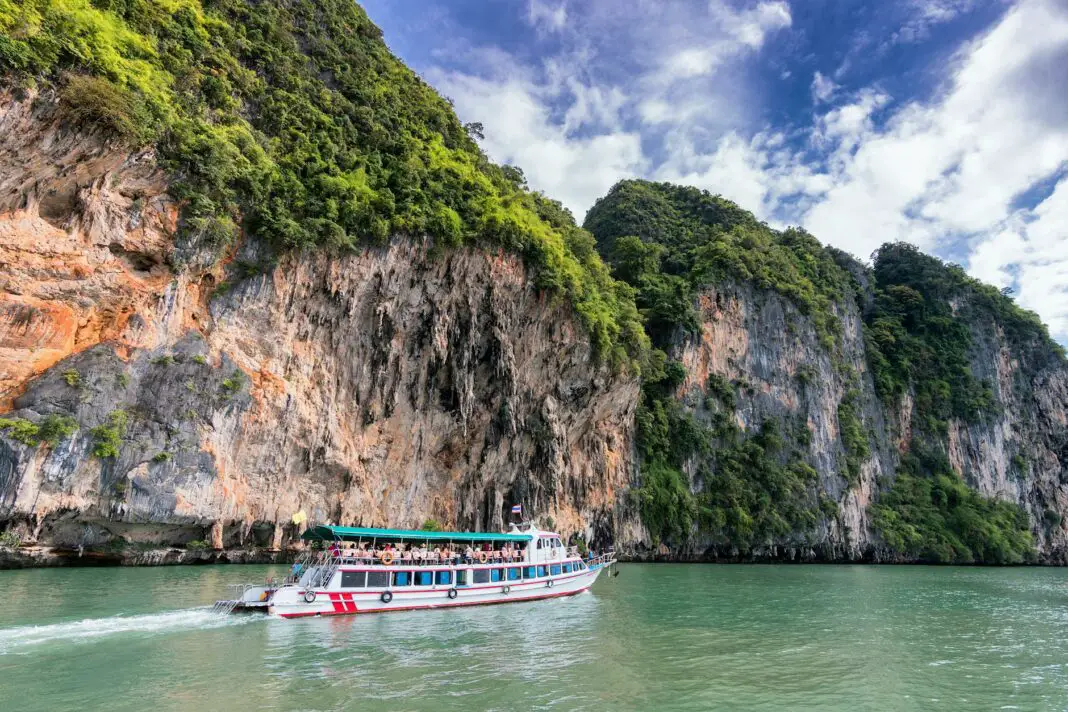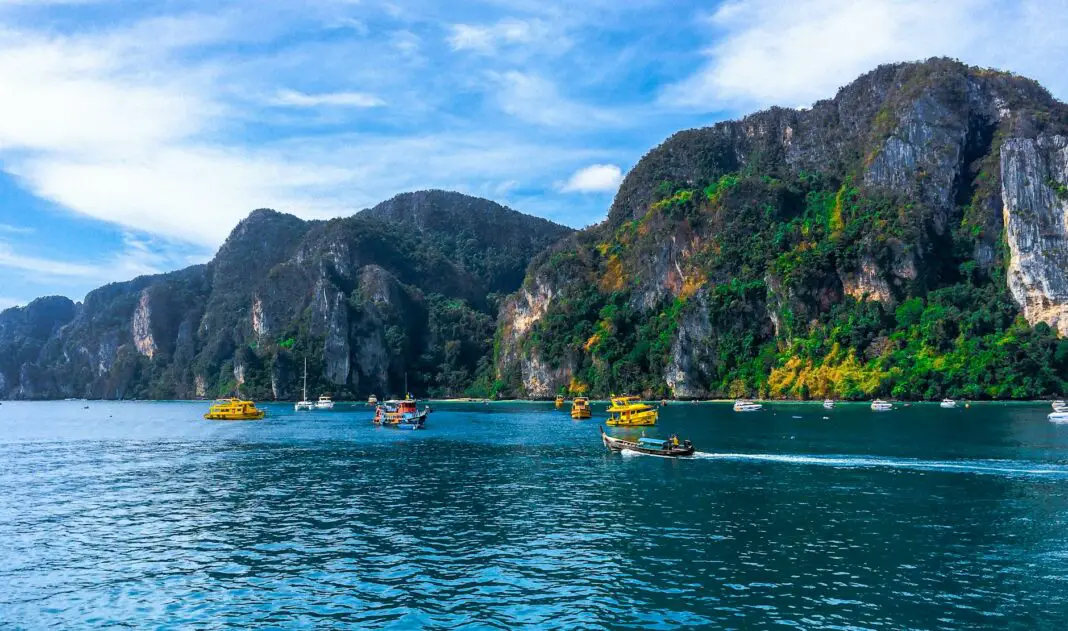Exploring the Wonders of Thailand and its Marine Conservation Efforts for Coral Reefs
Thailand is well-known for its vibrant culture, breathtaking landscapes, and of course, its stunning marine life. From the emerald waters of the Andaman Sea to the coral-laden coasts of the Gulf of Thailand, this tropical paradise is a treasure trove for nature enthusiasts and adventurous souls alike. However, alongside the alluring beauty lies a pressing need for conservation. This blog post dives deep into Thailand’s initiatives aimed at preserving its coral reefs, posing the vital question: Can Thailand’s marine conservation efforts genuinely save coral reefs today? We will explore various aspects, including Thailand’s rich marine biodiversity, ongoing conservation efforts, and the impact of tourism on coral ecosystems, offering readers compelling insights and actionable tips to get involved.
By navigating through this blog, you will not only gain a deeper understanding of the state of coral reefs in Thailand but also discover ways to contribute to their preservation. As we explore this significant issue, you’ll find that protecting these underwater treasures is not simply about ecological health; it’s about safeguarding the livelihood of communities and the future of marine tourism. Join us on this enlightening journey, as we uncover how dedicated initiatives are working to combat the challenges facing coral reefs, and discover what you can do to help.
Table of Contents
- Marine Biodiversity in Thailand
- Conservation Efforts in Thailand
- Impact of Tourism on Coral Reefs
- Why Preserving Coral Reefs Matters
- Actionable Insights for Visitors
- A Future with Coral Reefs
- FAQs on Thailand’s Marine Conservation
Marine Biodiversity in Thailand
The marine biodiversity in Thailand is nothing short of spectacular. Home to an extensive array of coral reefs, the country boasts over 300 species of corals and a plethora of marine life, including majestic manta rays, colorful tropical fish, and numerous endangered species like sea turtles. These ecosystems play an essential role in maintaining the balance of marine life and supporting local economies through fishing and tourism. In particular, the coral reefs act as vital nurseries for many fish species, contributing to biodiversity and ensuring the sustainability of marine populations.
Unfortunately, climate change, pollution, and overfishing have placed immense pressure on these critical habitats. As ocean temperatures rise and waters become increasingly acidic, coral bleaching has become an ever-present threat. This process endangers the corals’ survival, which in turn impacts the myriad species that depend on them. Despite these challenges, the resilience of Thailand’s ecosystems shines through, and with focused conservation efforts, there is hope for their recovery and long-term sustainability.
Conservation Efforts in Thailand
Thailand has engaged in various conservation initiatives aimed at protecting its marine environment, focusing on coral reef restoration and sustainable practices. Notable projects include coral nurseries, where fragments of healthy corals are cultivated to rebuild degraded reefs. Organizations like The Coral Triangle Initiative collaborate with local communities and governments to promote sound fishing practices, reduce pollution, and create marine protected areas. These areas serve as sanctuaries for marine life, allowing ecosystems to recover and flourish without the pressures of human activity.
Additionally, education plays a crucial role in these conservation efforts. Local communities, students, and divers are educated about the importance of coral reefs and sustainable practices. By instilling awareness and appreciation, these programs encourage more people to take part in protective measures, creating a community-centered approach to marine conservation. The impact of these ongoing initiatives demonstrates the significant strides Thailand is making in preserving its marine heritage, offering hope for both the reefs and the people who rely on them.
Impact of Tourism on Coral Reefs
Tourism, while vital to Thailand’s economy, poses both challenges and opportunities for coral reef preservation. The influx of visitors can lead to increased pollution, coral damage from anchoring boats, and overcrowding in sensitive areas. However, responsible tourism practices can play a significant role in the conservation narrative. Eco-tourism initiatives allow visitors to enjoy the beauty of marine ecosystems while promoting sustainable behaviors. Many dive operators and tour companies now offer educational programs aiming to inform guests about ecological preservation and the importance of coral reefs.
Additionally, collaborations between the tourism industry and conservation organizations can pave the way for innovative solutions to mitigate negative impacts. By encouraging environmentally friendly practices, such as utilizing biodegradable materials and adhering to established guidelines for diving and snorkeling, the tourism sector can become an ally rather than an adversary in the fight for coral reef conservation. Ultimately, fostering a sense of stewardship among tourists will ensure that these underwater wonders continue to thrive for generations to come.
Why Preserving Coral Reefs Matters
The importance of preserving coral reefs extends far beyond mere aesthetics. These intricate ecosystems are crucial for the survival of countless marine species, acting as habitats, feeding grounds, and even spawning areas. Economically, healthy coral reefs contribute to fisheries, protect coastlines from erosion, and attract millions of tourists each year, directly impacting Thailand’s livelihood. Furthermore, coral reefs play a vital role in carbon cycling and mitigating climate change, emphasizing their significance beyond immediate human needs.
Protecting these marine ecosystems is not just an environmentalist’s concern; it is a global responsibility. As we face accelerating climate change and loss of biodiversity, the health of coral reefs directly influences our planet’s future. By committing to conservation efforts, Thailand stands at the forefront of marine preservation, setting an example on how nations can harmoniously blend economic growth with environmental stewardship. This concerted effort showcases that we can still create a sustainable future.
Actionable Insights for Visitors
For those looking to contribute positively while enjoying Thailand’s breathtaking marine life, there are several actionable insights to incorporate into your travels. Firstly, choose eco-friendly tour operators who prioritize sustainable practices and support conservation projects. Participate in beach clean-ups or reef restoration activities to make a direct impact. Make a conscious effort to minimize plastic usage and opt for reusable products during your travels.
It’s also important to educate yourself about the ecosystems you will be encountering. Understanding the delicate balance of marine life and the role of coral reefs can empower you to advocate for their protection. Ultimately, every positive action contributes to a greater collective effort, ensuring a healthier marine environment. By becoming a responsible traveler, you play a vital role in preserving the beauty and biodiversity of Thailand’s coral reefs.
A Future with Coral Reefs
Looking ahead, the future of coral reefs in Thailand hinges on the success of current conservation initiatives and the collective commitment of local communities, tourists, and the global community. Restoring coral health is an achievable goal, provided that proactive measures continue to be embraced at every level. Innovative technologies, such as coral gardening and artificial reefs, are on the rise, and they hold promise for rejuvenating damaged ecosystems.
By nurturing awareness and cultivating a culture of environmental responsibility, Thailand can position itself as a leader in marine conservation. The potential to heal and sustain these vibrant underwater worlds offers a glimmer of hope amidst the challenges faced. It’s an exciting time to be involved in coral reef conservation, as the synergy between individuals and communities can pave the way for a thriving future for Thailand’s marine treasures.
FAQs on Thailand’s Marine Conservation
What are the main threats to coral reefs in Thailand?
The primary threats include climate change, pollution, overfishing, and destructive tourism practices, all of which compromise the health of coral ecosystems. Coral bleaching due to rising sea temperatures is a significant concern.
How can tourists help with coral reef conservation?
Tourists can support sustainable tourism practices, choose eco-friendly tours, participate in local conservation activities, reduce plastic waste, and educate themselves about marine ecosystems.
Are there successful coral reef restoration projects in Thailand?
Yes, numerous organizations are implementing coral restoration projects, including coral nurseries and coral gardening, which aim to rehabilitate damaged reefs and enhance marine biodiversity.
What role does the government play in coral reef conservation?
The Thai government collaborates with NGOs and local communities to establish marine protected areas, enforce regulations on fishing, and promote sustainable tourism practices to safeguard coral reefs.
What can I do as a local resident to support reef conservation?
Engaging in recycling programs, reducing waste, participating in local clean-up events, and advocating for policies that protect marine environments are effective ways for residents to contribute.
Taking Action for Thailand’s Coral Reefs
With all that we have explored regarding Thailand’s vibrant marine life and ongoing conservation efforts, it is clear that the challenges facing coral reefs are immense but not insurmountable. By embracing sustainable practices, educating ourselves and others, and actively supporting conservation initiatives, we can each play a part in safeguarding these essential ecosystems. Together, let’s invest in our planet’s future by advocating for the preservation of marine biodiversity in Thailand and beyond.
Image Credit: Pexels





